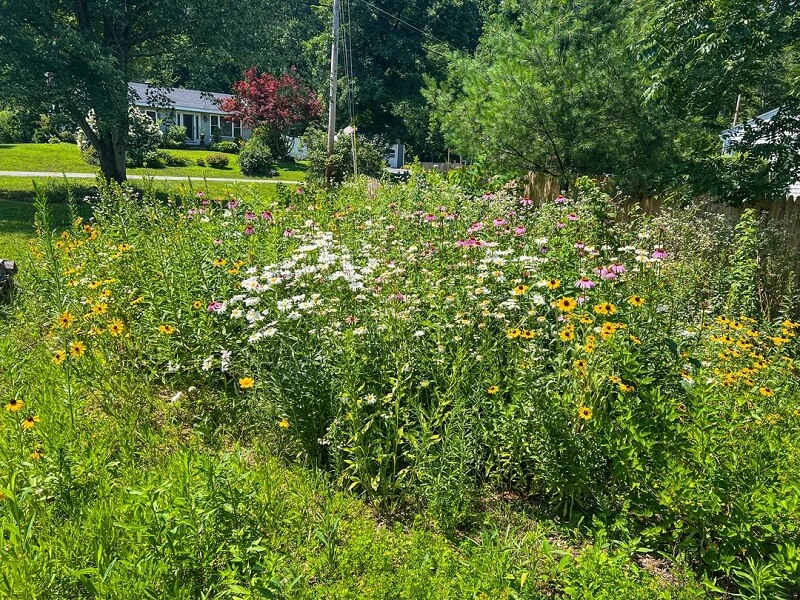If you're looking to rewild your yard, wildflower seed mixes may sound like a good idea and an easy way to go about it. However, gardeners are slowly and painfully realizing these mix packs are often mislabeled and don't contain seeds native to their specific regions.
In a Reddit post, one gardener described their mistake of spreading a large container of wildflower seeds four years ago, and they are now dealing with a significant overgrowth of Shasta daisies.

The homeowner resides in New York and was convinced by their mother not to let the seeds go to waste.
"I've been able to deal with nearly everything that came with it, just not the Shasta [daisies]," wrote the original poster. "I don't think they're completely taking over, but I don't want to risk them taking over."
The homeowner shared a photo of the wildflowers and asked r/NativePlantGardening followers whether it's worth pulling the plants out or just cutting the stems so they don't seed.
Shasta daisies are an example of a plant that can spread steadily and inhibit the growth of local systems. Non-native, invasive wildflower mixes can do more harm than good in a yard or garden, so it's essential to research what seed packets contain before spreading them in your soil.
One good resource to consult is the National Wildlife Federation's native plant finder. This tool invites eco-minded gardeners to enter their zip code to get a list of flowers, grasses, trees, and shrubs native to their local areas.
If the plants already exist, like in this Reddit post, it may be worth pulling out the invasive species or at least cutting off the flowers so they don't produce seeds and spread even more.
"I left mine alone and it took over large chunks of the garden and the lawn," a Reddit user wrote in the comments. "But they are super easy to pull out, bc they root shallowly."
"It's not the absolute best plant you can possibly have if you want to be a native purist and maximally optimize your garden, but I've had no problem leaving my daisies be," another Redditor shared.
Join our free newsletter for easy tips to save more and waste less, and don't miss this cool list of easy ways to help yourself while helping the planet.









